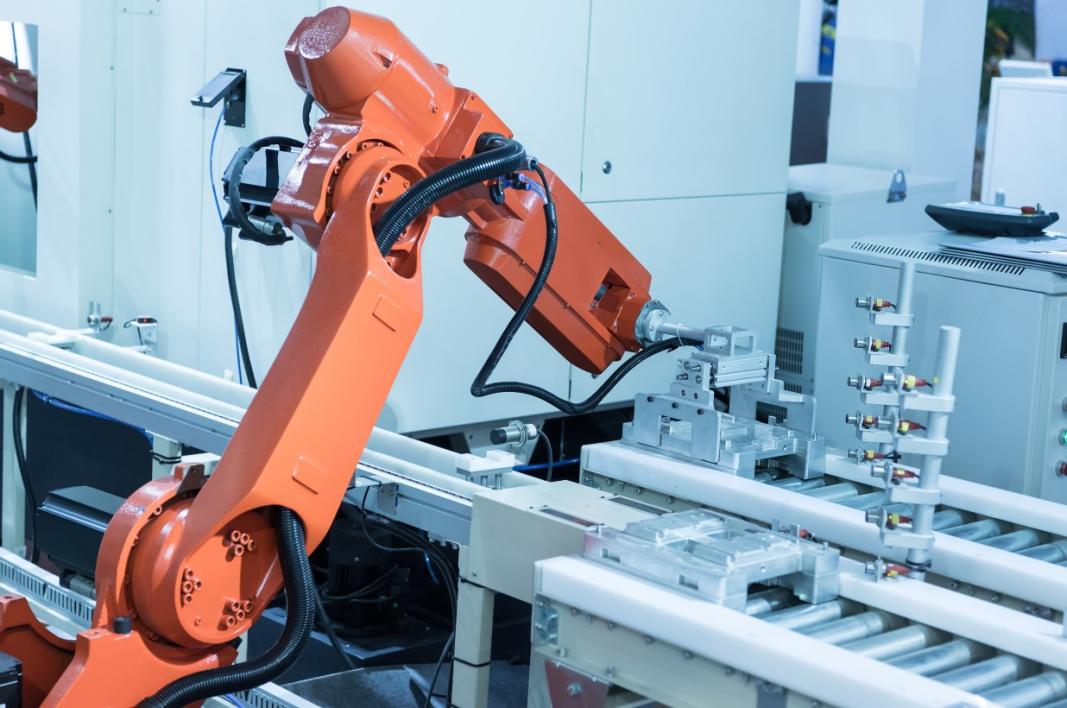How Can AI Help Startups Gain a Competitive Advantage?
In today's rapidly evolving business landscape, startups face numerous challenges in establishing a strong market position and achieving sustainable growth. Artificial Intelligence (AI) has emerged as a transformative technology that holds immense potential for startups to gain a competitive advantage and thrive in the digital era.

Defining AI And Its Significance In The Startup Ecosystem
AI refers to the simulation of human intelligence processes by machines, enabling them to perform tasks that typically require human intervention. AI encompasses various technologies, including machine learning, natural language processing, computer vision, and robotics. The integration of AI into startup operations can revolutionize business processes, enhance customer experiences, and drive innovation.
The increasing adoption of AI by startups is evident across industries. According to a recent survey, 86% of startups believe that AI will be critical to their success in the next five years. This surge in AI adoption is attributed to the numerous benefits it offers, including improved efficiency, enhanced decision-making, and the ability to create innovative products and services.
AI Applications For Startups
The applications of AI in the startup ecosystem are diverse and far-reaching. Here are some key areas where AI can provide startups with a competitive edge:
Customer Experience Enhancement:
- Chatbots and Virtual Assistants: AI-powered chatbots and virtual assistants offer personalized and responsive customer support, enhancing the overall customer experience.
- AI-Powered Recommendation Systems: AI algorithms analyze customer data to provide tailored product suggestions, increasing customer engagement and satisfaction.
- Sentiment Analysis: AI-based sentiment analysis tools gauge customer satisfaction and feedback, enabling startups to make data-driven improvements to their products and services.
Data-Driven Decision-Making:
- AI Algorithms for Data Analysis: AI algorithms analyze large volumes of data to identify patterns, trends, and insights that aid in informed decision-making.
- Predictive Analytics: AI-powered predictive analytics forecast market demand, customer behavior, and sales trends, enabling startups to make strategic business decisions.
- Risk Assessment and Fraud Detection: AI-based models assess risks and detect fraudulent activities, protecting startups from financial losses and reputational damage.
Operational Efficiency:
- AI-Powered Automation: AI automates repetitive and time-consuming tasks, such as data entry and customer service, improving operational efficiency and productivity.
- Machine Learning for Supply Chain Management: Machine learning algorithms optimize supply chain management and logistics, reducing costs and improving delivery times.
- AI-Enabled Predictive Maintenance: AI-based predictive maintenance systems minimize downtime and improve asset utilization by identifying potential equipment failures in advance.
Product and Service Innovation:
- AI-Driven Design Tools: AI-powered design tools assist in creating innovative products and services, enhancing their functionality and user experience.
- Machine Learning for New Features: Machine learning algorithms develop new features and functionalities, keeping products and services competitive and relevant.
- AI-Powered Testing and Quality Assurance: AI-based testing and quality assurance tools ensure product reliability and minimize defects.
Market Expansion:
- AI-Based Market Research and Analysis: AI-powered market research and analysis tools identify new customer segments and markets, enabling startups to expand their reach.
- AI-Enabled Language Translation and Localization: AI-based language translation and localization tools facilitate global expansion by adapting products and services to different languages and cultures.
- AI-Powered Market Intelligence: AI-based market intelligence tools monitor competitors and industry trends, providing startups with valuable insights for strategic planning.
Benefits Of AI For Startups

The adoption of AI can provide startups with numerous benefits that contribute to their success and growth:
- Increased Efficiency and Productivity: AI automates tasks, streamlines processes, and enhances overall productivity, enabling startups to do more with less.
- Improved Customer Experience: AI enables personalized and responsive customer interactions, leading to higher satisfaction, loyalty, and positive word-of-mouth.
- Data-Driven Insights: AI analyzes data to provide valuable insights for decision-making, product development, and marketing strategies, helping startups make informed choices.
- Enhanced Innovation: AI fosters creativity and innovation by generating new ideas, exploring new possibilities, and developing novel solutions, giving startups a competitive edge.
- Competitive Advantage: AI adoption can differentiate startups from competitors, attract top talent, and establish a strong market position, leading to sustainable growth.
Challenges And Considerations
While AI offers immense potential for startups, there are certain challenges and considerations that need to be addressed:
- Data Quality and Availability: AI relies on data, and startups need to ensure data quality and availability to derive meaningful insights and make accurate predictions.
- Cost and Resources: Implementing AI solutions can be expensive, and startups may need to consider budget and resource constraints when adopting AI technologies.
- Ethical and Legal Implications: AI raises ethical and legal concerns, such as data privacy, bias, and accountability. Startups need to address these issues responsibly to maintain trust and reputation.
- Skills and Expertise: Startups may need to invest in training or hire specialized talent to implement and manage AI solutions effectively, which can be a challenge given the competitive tech talent market.
AI has emerged as a transformative technology that holds immense potential for startups to gain a competitive advantage and achieve sustainable growth. By leveraging AI applications across various business functions, startups can enhance customer experiences, improve operational efficiency, drive innovation, and expand into new markets. While there are challenges to consider, the benefits of AI adoption far outweigh the risks. Startups that embrace AI and integrate it into their operations, products, and services will be well-positioned to succeed in the digital age and beyond.
Startups should explore AI applications relevant to their business and industry, conduct thorough research, and develop a comprehensive AI strategy. By embracing AI, startups can unlock new opportunities, transform their operations, and revolutionize their products and services, setting themselves apart from competitors and establishing a strong foundation for long-term success.
YesNo

Leave a Reply